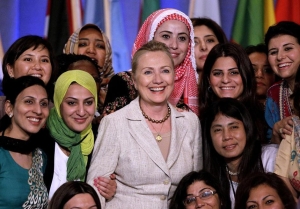Experts Answer: Women in Public Diplomacy-Full Length Response
Women around the world are increasingly taking on more high-profile leadership roles in foreign affairs and public diplomacy. Similarly, public diplomacy priorities are increasingly focused on women and women’s issues. From your perspective, how has this shift towards the importance of women impacted your country’s public diplomacy priorities or affected your country’s public?
Having a woman in a leadership role in foreign affairs does not guarantee women informing policy. Such is the case with Israeli public diplomacy. During Foreign Minister Tzipi Livni’s watch (2006-2009) Israel’s public diplomacy moved beyond its traditional hasbara approach, which focuses upon “explaining” difficult issues, into re-branding Israel as a unique blend of a high tech industry leader, and sun drenched fun Mediterranean country with a party lifestyle. To that end, the Ministry of Foreign Affairs, in 2007, decided to create a public diplomacy campaign that focused upon exploiting its “Hidden Assets,” namely, its sexy young women.
The highlight of this campaign was a Maxim Magazine photo spread (June 2007) featuring the girls of the Israeli Defense Force, clad in bikinis and, in some cases, cradling their weapons. The goal of this campaign was to counter the increasing anti-Israeli sentiment on college campuses across the U.S. by counting on the hormones of young men ages 18-35 to distract them from any geopolitical activism.
The media commentary that followed commented extensively that Israel may have feminism with Prime Minister Golda Meir back in the 70’s, but, now, Israel has “BABES.” This cynical attempt to use its women as sex objects rather than promote the empowerment of its women by creating real policies that can be lauded has defined Israel’s public diplomacy priorities.
Overall, other than constantly pointing out that Israel had a woman prime minister in the 1970’s and that women serve in the army, women’s issues have not been at all relevant to Israel’s public diplomacy efforts. Even though there are plenty of examples of women empowering each other across all ethnic and religious lines, for now, the Israeli foreign ministry has chosen to ignore women’s issues and empowerment.
Yael Swerdlow and Illana Shoshan, co-founders, Women’s Empowerment Foundation
Issue Contents
Most Read CPD Blogs
-
January 29
-
January 20
-
January 28
-
January 2
-
January 8
Visit CPD's Online Library
Explore CPD's vast online database featuring the latest books, articles, speeches and information on international organizations dedicated to public diplomacy.









Add comment